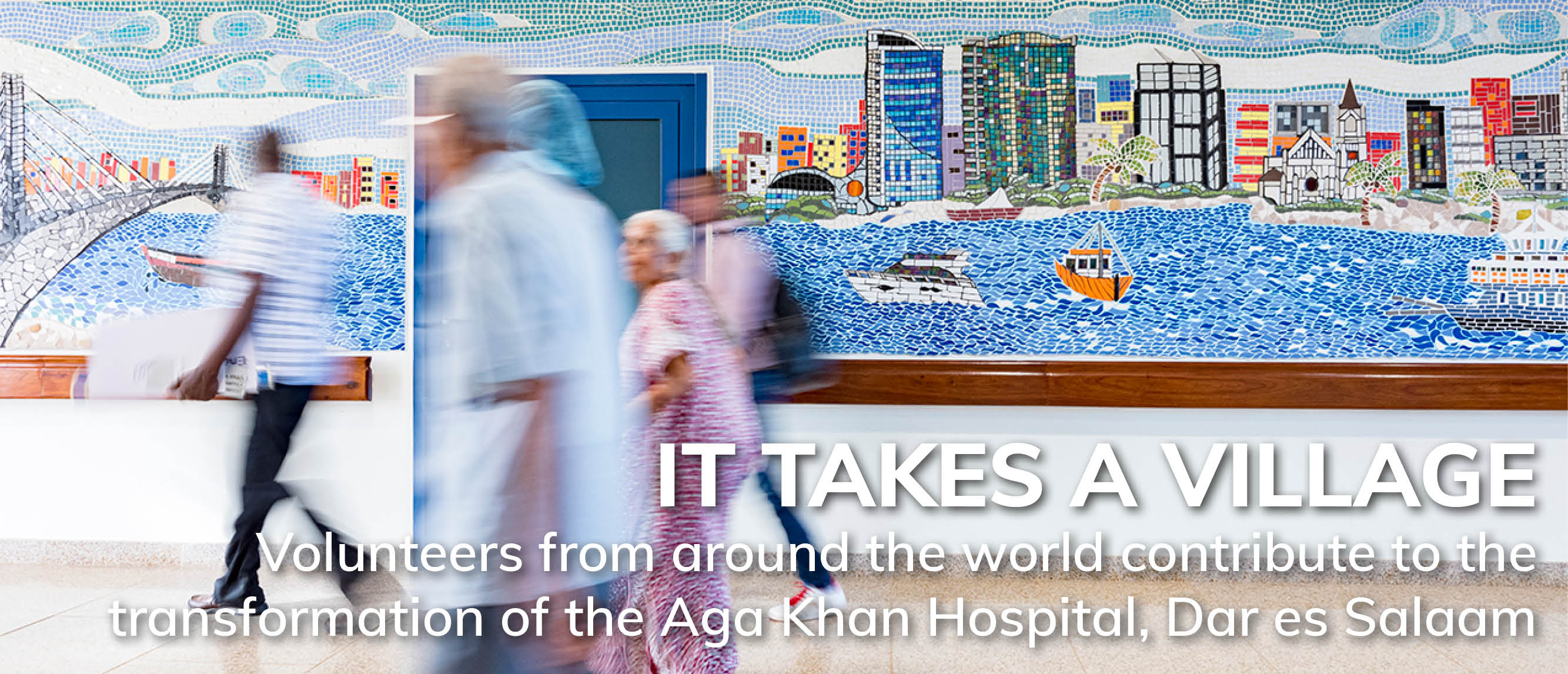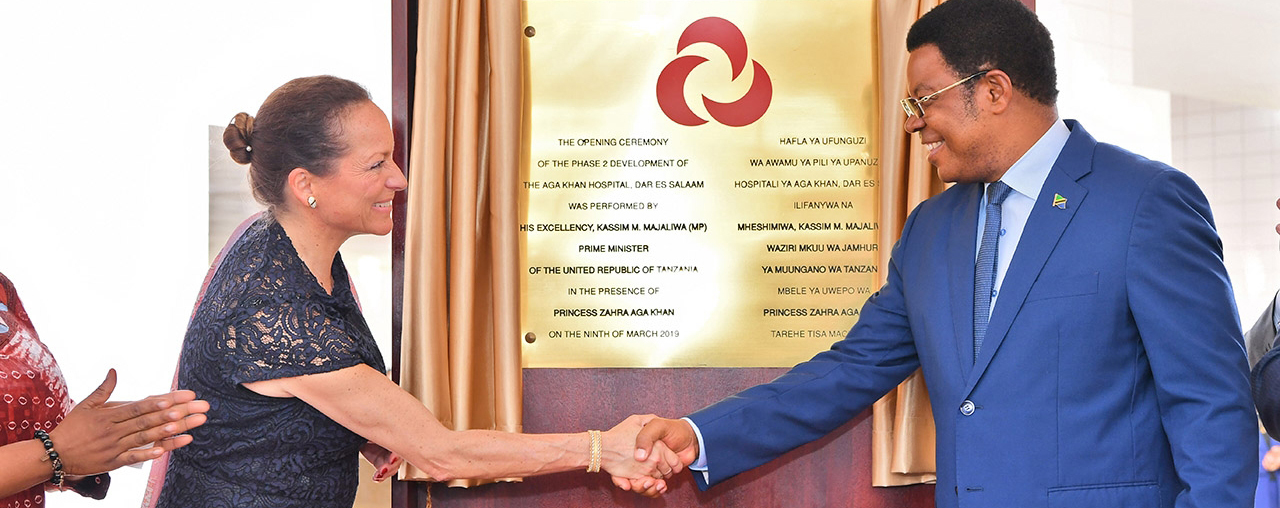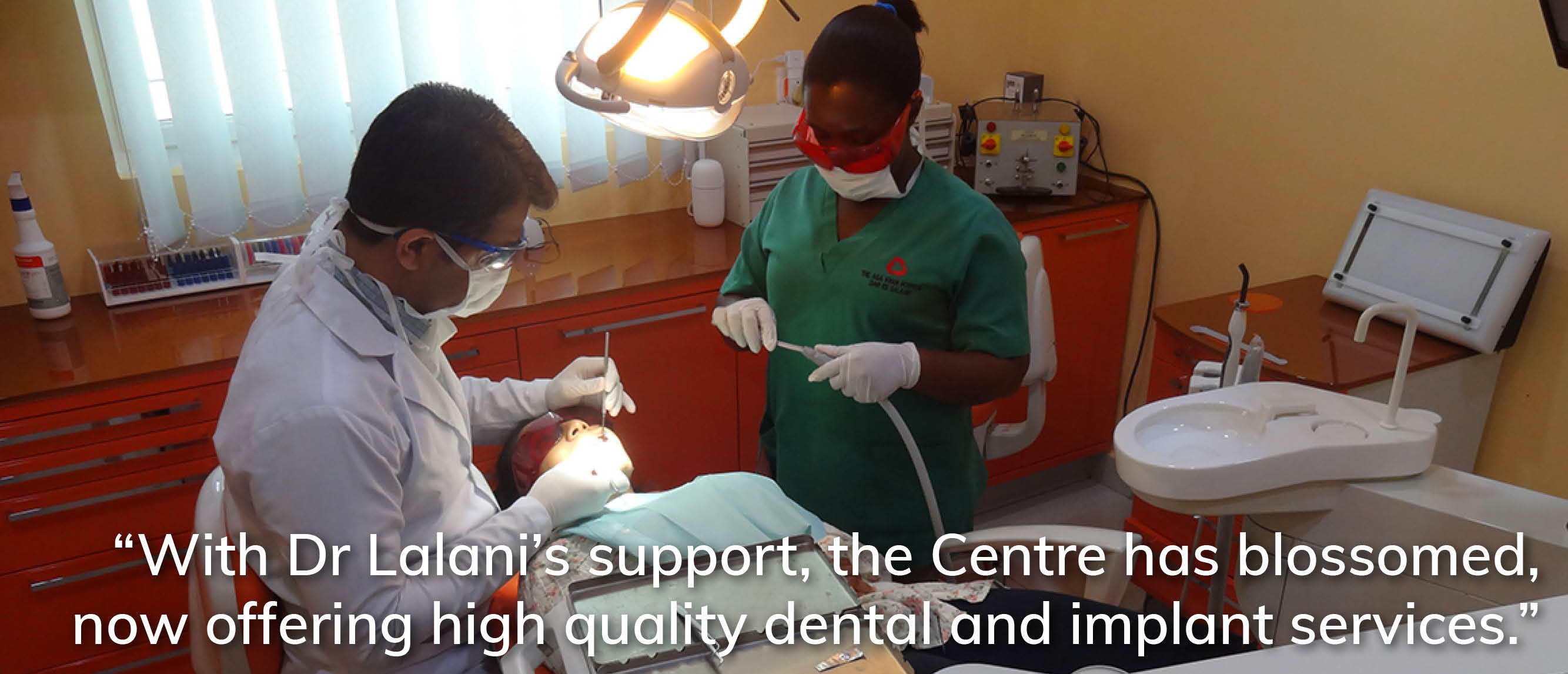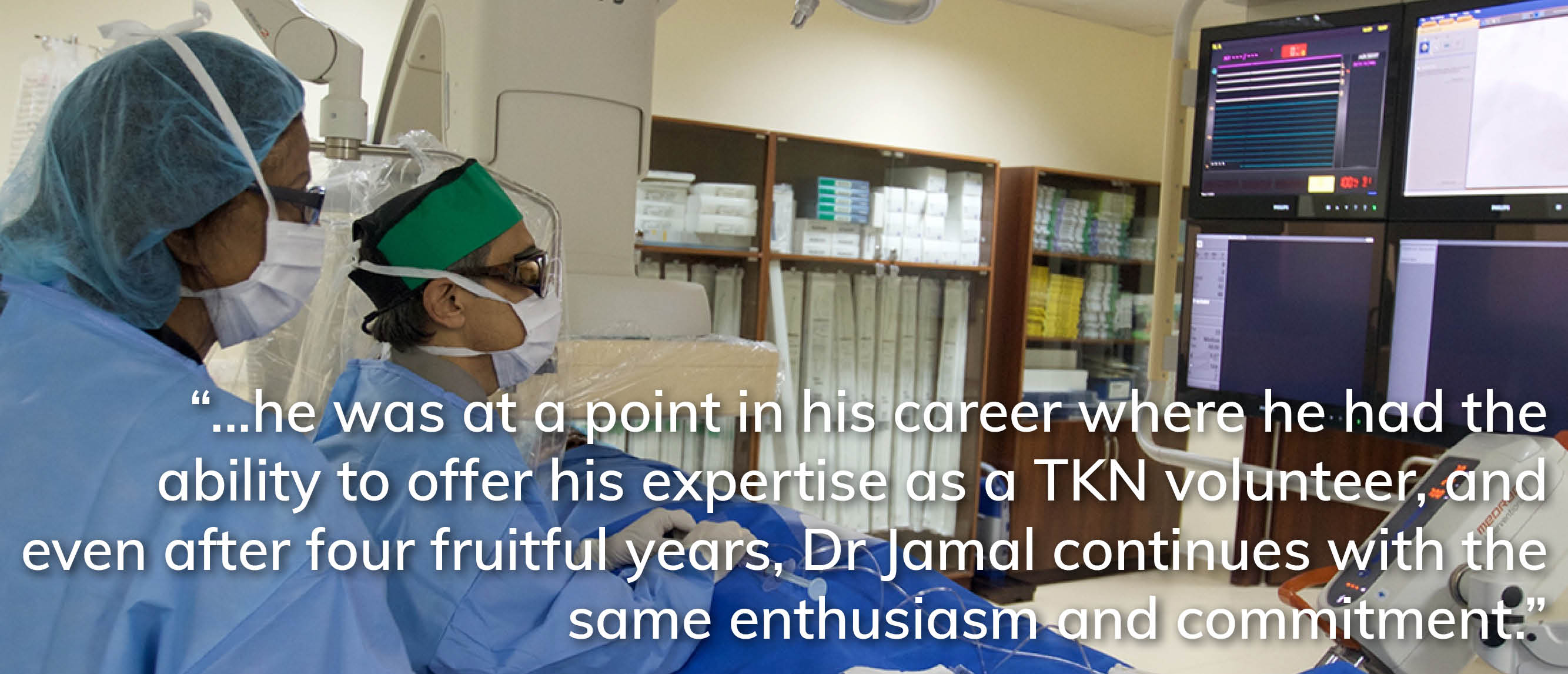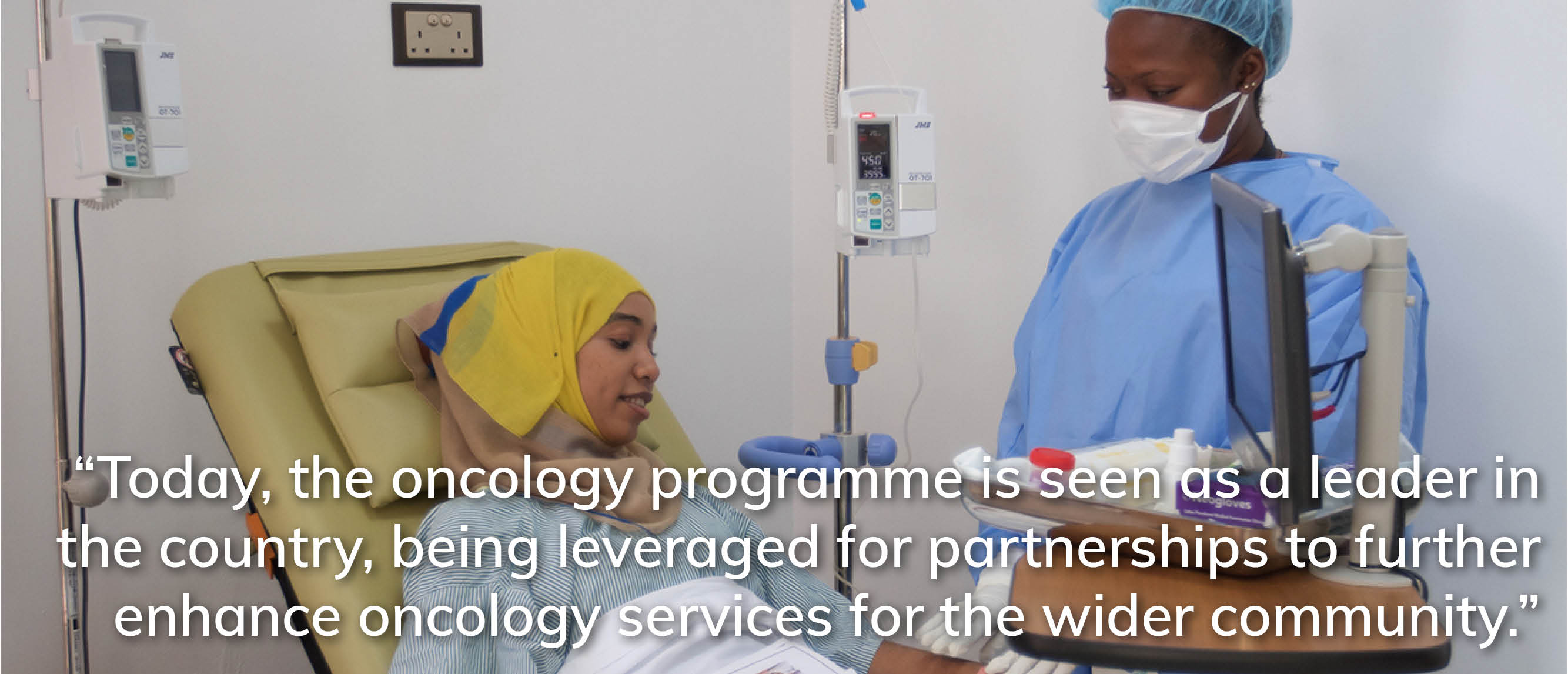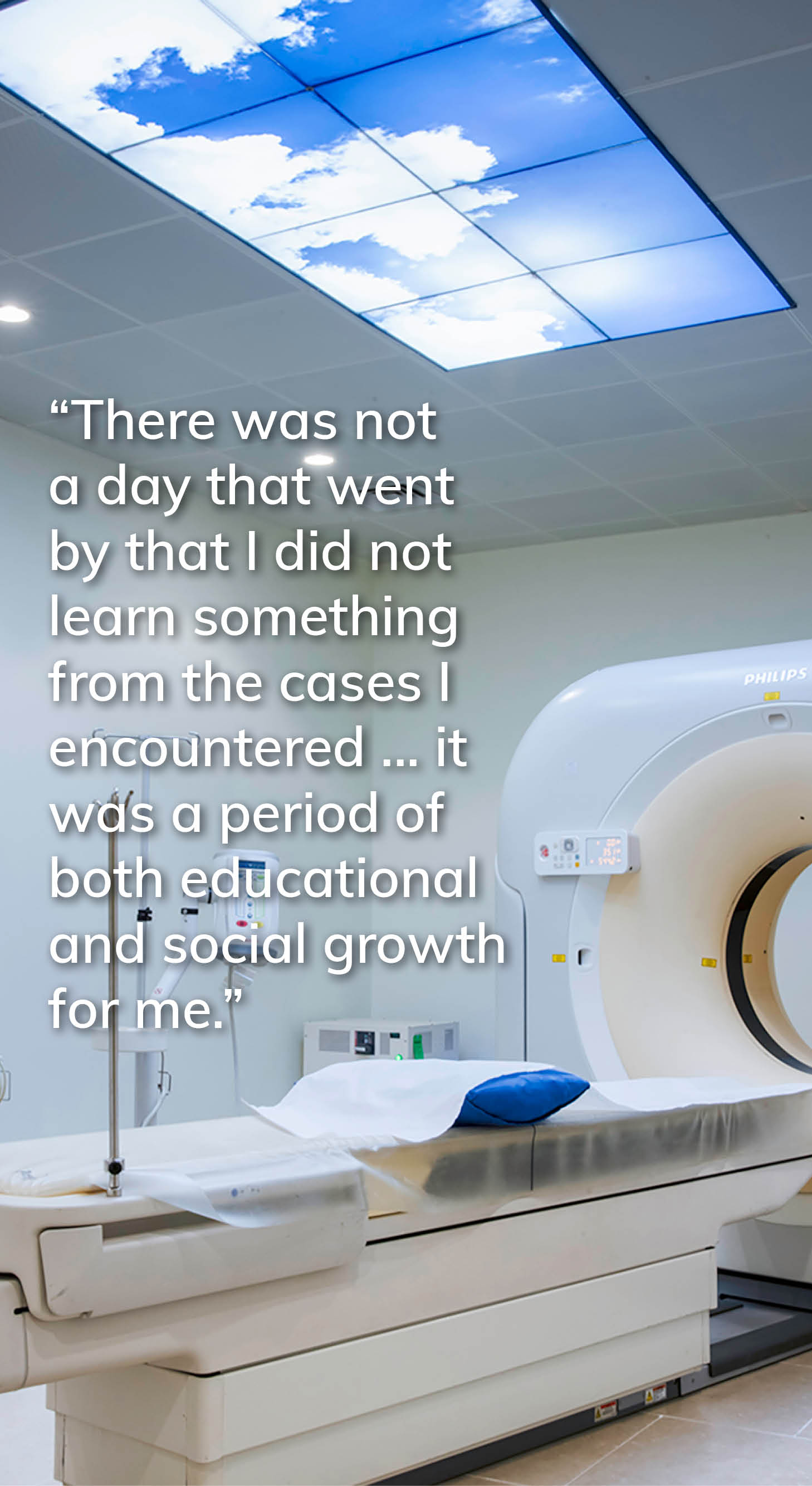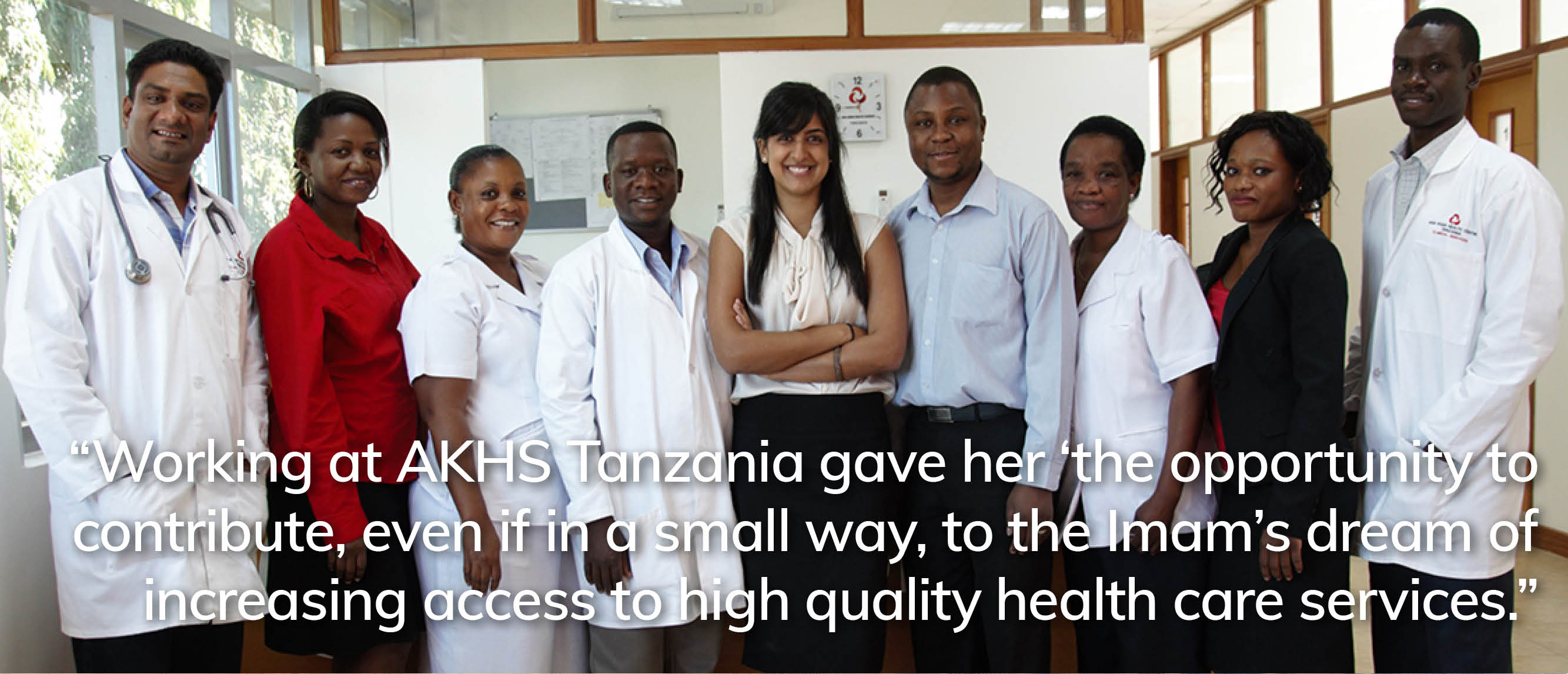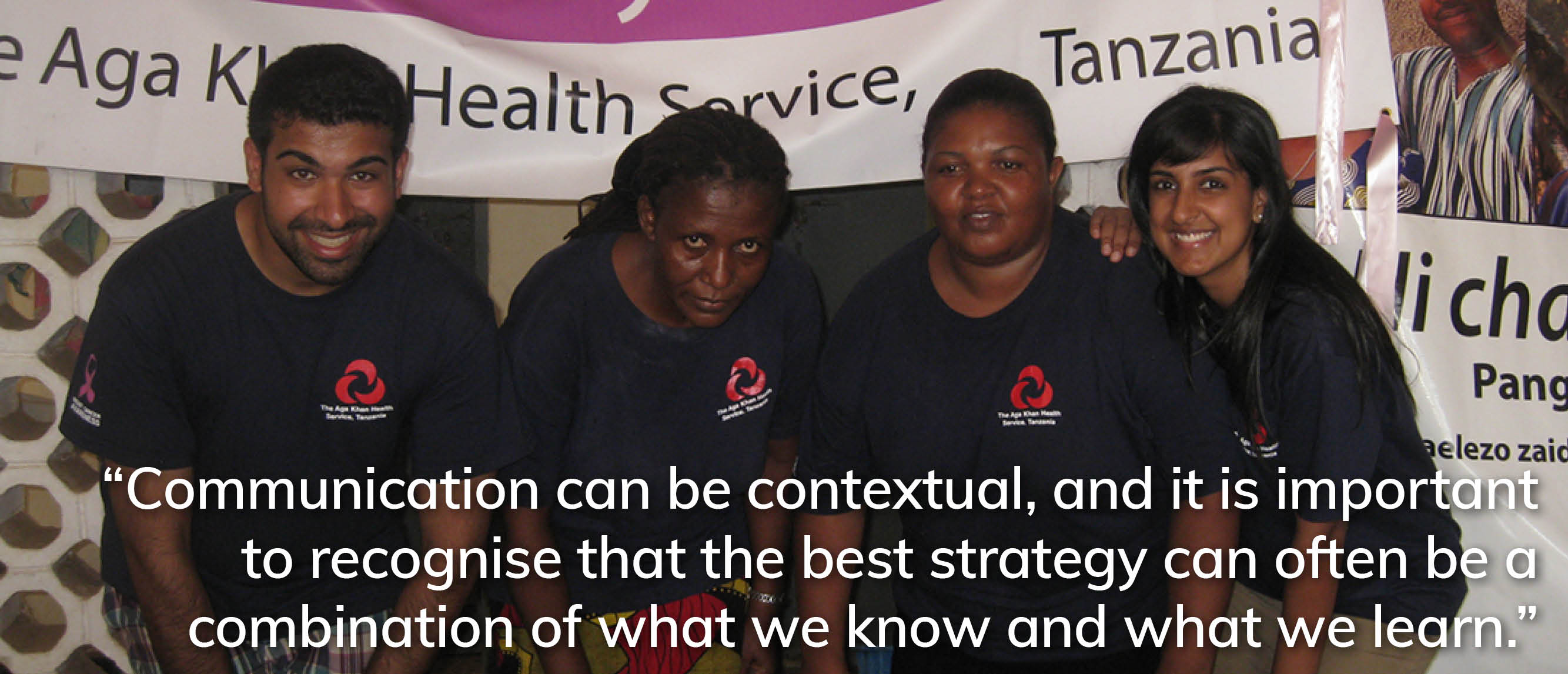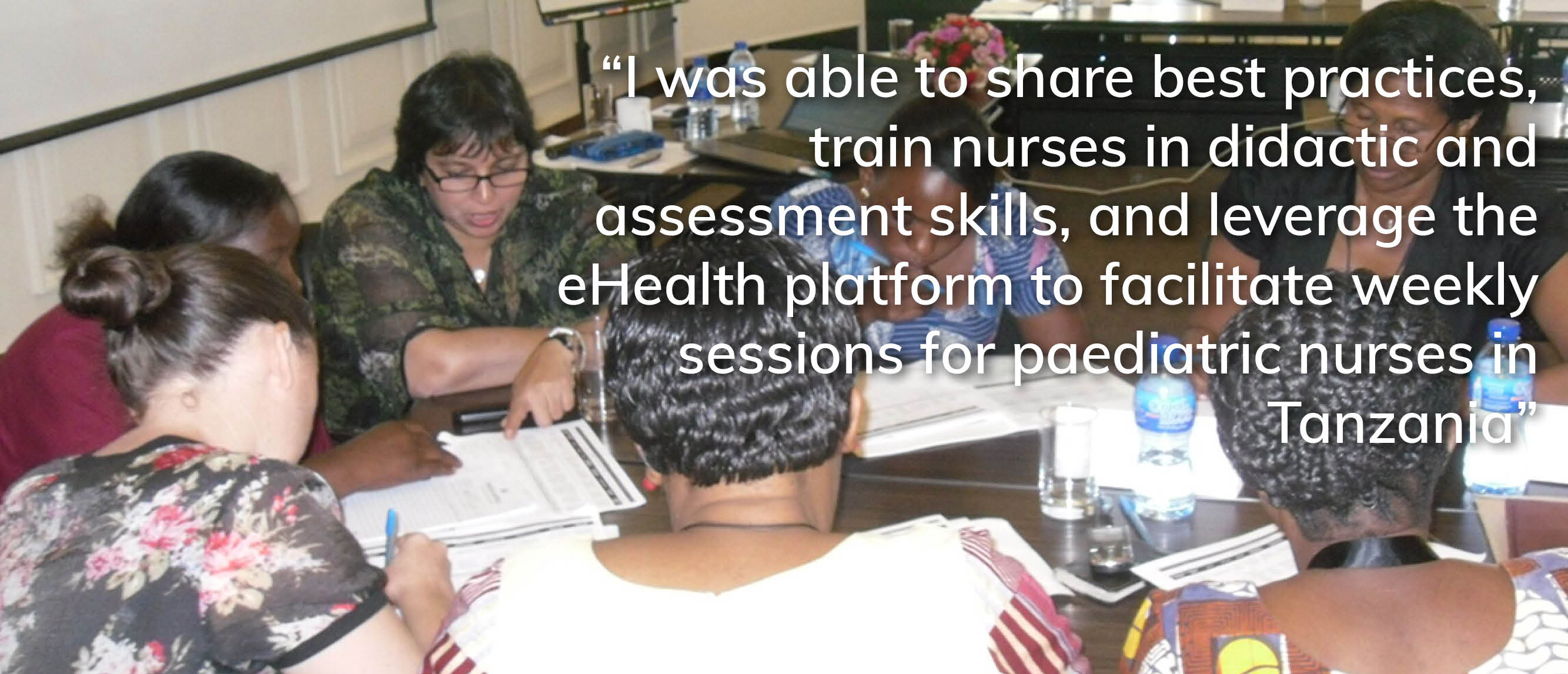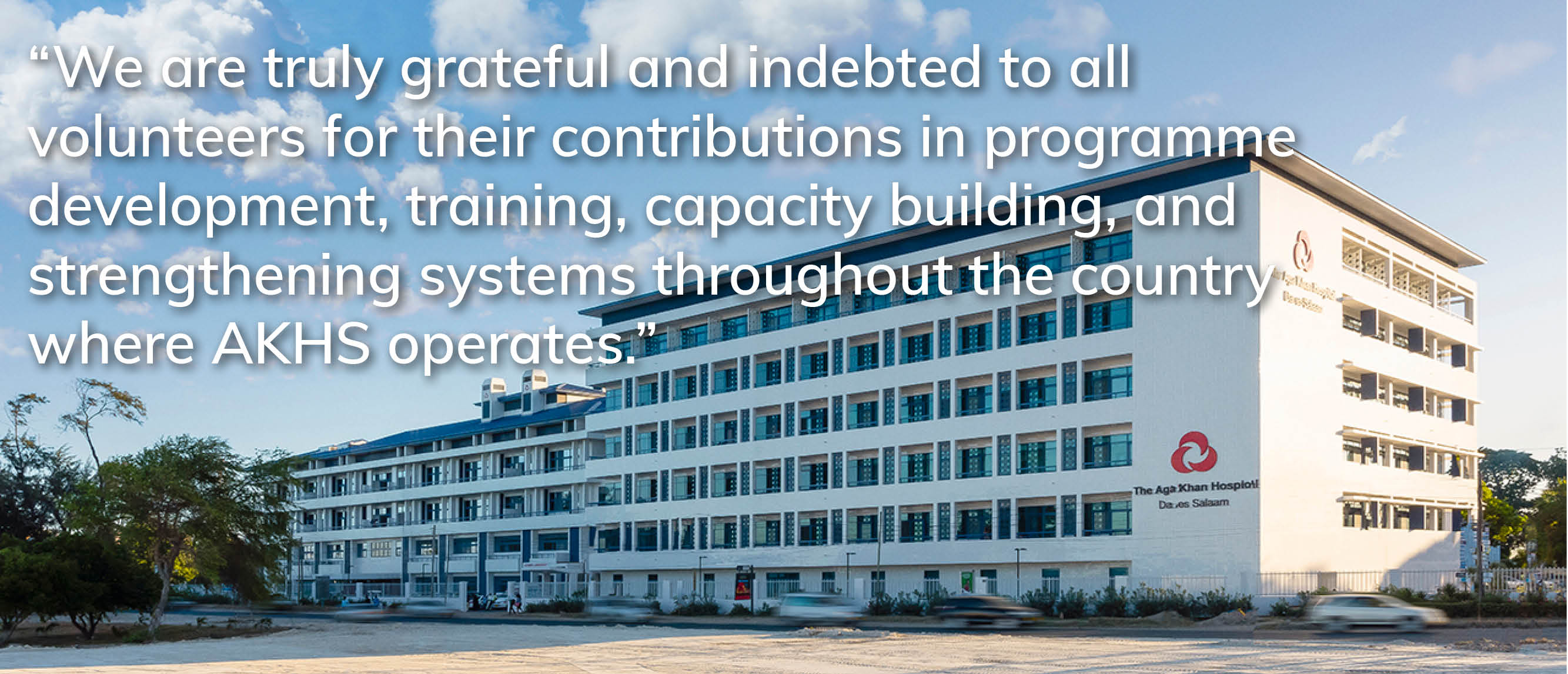By Safiyya Devraj
They say it takes a village, and this is especially true for the Phase II expansion of the Aga Khan Hospital in Dar es Salaam. Areas such as infrastructure and technology, clinical programme development, capacity building, system and process improvements, and strengthening the continuum of care, all benefited from a team of volunteers who have contributed to the development of the hospital and health systems in Tanzania.
On 9 March 2019, the Prime Minister of the United Republic of Tanzania, His Excellency Kassim M. Majaliwa, inaugurated the state-of-the-art facility at the invitation of Princess Zahra Aga Khan. This Phase II expansion has resulted in increased capacity and enhanced care and has enabled the Aga Khan Health Service (AKHS) in Tanzania to move a step closer to achieving Mawlana Hazar Imam’s vision of it being the premier teaching and tertiary health system in the country for strengthening the quality and expanding the scope of care provided to the people of Tanzania and surrounding regions.
Today, Phase II has enabled the hospital to evolve from a 74-bed secondary care hospital to a 170-bed tertiary care teaching hospital. The real value that lies in the project is the clinical programmes and the top class experience of care provided to the patients.
AKHS has been fortunate to have benefitted from the selfless contribution of numerous Ismaili volunteers and interns — amongst them over 30 TKN volunteers — as well as non-Ismaili volunteers who have been instrumental in assisting the Hospital to put in place various clinical programmes and protocols, imparting training, and developing human capacity for sustainability of services and programmes. Some of the notable contributions are illustrated here.
The Dental and Implant Centre was initiated by TKN volunteer Dr Amir Lalani in 2007, starting with a small dental unit. With Dr Lalani’s support, the Centre has blossomed, now offering high quality dental and implant services. Dr Lalani’s efforts are not confined only to Tanzania; he has established and continues to support dental services in many countries where the Aga Khan health system operates.
The cardiovascular programme was established in 2012 by Dr Nasiruddin Jamal, a leading interventional cardiologist from USA. Dr Jamal gave up a running practice in New York to help AKHS in East Africa to establish strong cardiac programmes, first in Dar es Salaam and more recently in Mombasa. He states that he was at a point in his career where he had the ability to offer his expertise as a TKN volunteer, and even after four fruitful years, Dr Jamal continues with the same enthusiasm and commitment.
TKN volunteers Dr Munaf Shamji, an interventional cardiologist, and Noorbibi Gheewala, a cath lab technician, have also contributed to the establishment of a high-quality cardiology service that is trusted by the community. Dr Shamji, described his experience as being “one of the most meaningful” in his life allowing him to bring medical expertise gained in the western world back to the country of his origin.
The contributions of these volunteers in establishing the cardiac catheterisation laboratory with appropriately-trained nurses and technicians has established the institution as a frontrunner in cardiovascular care.
The oncology programme, formally launched in 2016, was started by Dr Amyn Alidina, who joined the hospital in 2013 as a full-time medical oncologist. The oncology programme, designed to address the full continuum of care for cancer patients, also received support from other volunteers. Shabnam Moledina, a TKN volunteer and oncology nurse with over 40 years of experience, worked with nurses on developing sound clinical and patient care practices — coming back year after year to ensure the desired quality of care. Alim Haji, a TKN volunteer in the IT department, was responsible for diagnosing and overhauling the workflow for oncology doctors, nurses, and pharmacists by developing custom integrated software in order to eliminate protocol medication calculation and mixing errors.
Today, the programme is seen as a leader in the country, being leveraged for partnerships to further enhance oncology services for the wider community.
The Accident and Emergency services were upgraded to deliver primary trauma care with the untiring efforts of Dr Fazila Lalani, from USA. Dr Lalani was keen to give back to the community in a way that would allow her to change systems and create sustainable impacts, and having completed her TKN assignment, she joined the Aga Khan Hospital, Dar es Salaam full-time. Additionally, she has been actively working to improve the training and development programme not only for staff of the Hospital, but also for practitioners across the country. Through a public-private partnership, she spearheaded the establishment of a regular Primary Trauma Care course that adopts a train-the-trainer model to increase access to and training for care providers. To date, the course has had 11 cycles, certified five trainers, and over 200 providers, including public sector staff from Dar es Salaam, Moshi, and Zanzibar.
The Pathology Department continues to benefit immensely from the TKN contributions of Shameem Rahim, a technologist specialising in pathology and hospital and health care management. Shameem, who is from Canada, joined the department in 2014, and has helped build capacity by training local resident technicians and interns enrolled in the post-graduate programme in anatomic pathology. Her working experience spans over a period of 45 years in different countries, including Tanzania, Uganda, the United Kingdom, Saudi Arabia, and Canada.
Returning to the city of her birth after 40 years was not easy, but Shameem felt blessed to have been given a chance to serve the Imam. She has also been a valuable resource to the Aga Khan Health Board (AKHB) in Tanzania, overseeing health initiatives for the Jamat. Shameem said, “My time at AKH-Dar has taught me a lot. In the West we take health care and social services for granted. Our screening programs help the Jamat be more proactive in managing their health.”
Dr Munir Ghesani, the director of RAD-AID Tanzania, a chapter of the non-profit organisation providing education, service delivery, and technical assistance in diagnostic radiology, has been engaged with AKH-Dar for more than a decade in various capacities. He has often leveraged his radiology colleagues to visit the hospital and support its development. A key area of contribution was the selection of the PACS (picture archiving and communication system) and RIS (radiological information system) for the hospital as well as AKHS’ upcountry Primary Medical Centres. Dr Ghesani has also been instrumental in the development of the nuclear medicine department at AKH-Dar, the only private unit of its kind in the country.
The Radiology Department has also been fortunate to have Dr Almas Welji, a radiologist with fellowships in imaging and nuclear medicine, facilitating the consolidation of the hospital’s diagnostic imaging department, into a more robust and complete service that has grown almost three times with Phase II. Dr Welji notes that while she intended to support the radiology staff during her one-and-a-half year TKN assignment, giving her time, knowledge, and experience: “There was not a day that went by that I did not learn something from the cases I encountered.” She adds that “it was a period of both educational and social growth for me.”
Tangential to the Phase II development, was the growth of the Outreach Health Centres of AKHS in Tanzania, to improve access by taking quality practices closer to communities.
Aalia Chatur who joined as a management intern and continued as a Senior Programme Officer, spearheaded the establishment of outreach centres, with the first one being established in June 2013. Aalia said, “Ensuring a strong referral system from areas outside Dar es Salaam contributes to the true vision of a hub-and-spoke model of health service delivery.” In relation to her contributions, she explained that working at AKHS Tanzania gave her “the opportunity to contribute, even if in a small way, to the Imam’s dream (which had become my own too), of increasing access to high quality health care services: primary, diagnostic, specialised, and reproductive and child health care.”
With the expansion of the hospital and the outreach health centres, marketing and communications became essential. Taushif Kara, a management intern from Canada, was instrumental in formalising the marketing function that leveraged existing local media outlets and various advertising opportunities to keep the public aware of new services, as well as to educate and provide health promotion resources. He recalls that, “communication can be contextual, and it is important to recognise that the best strategy can often be a combination of what we know and what we learn.”
AKHS in Tanzania has since established a full marketing department that continues to grow and has benefited since 2017 from Yasmin Peermohammad, a TKN volunteer from Pakistan who with over 30 years of experience working in corporate relations, the airline and travel industry, communications and media relations both professionally and within Jamati and AKDN institutions, regularly provides guidance and direction. The institution is now active in demonstrating its commitment to dialogue in the healthcare landscape between the hospital, other health service providers, and with the community.
With the clinical expansion in Phase II, there was also an acute need to increase the management and leadership capacity of both administrative and clinical staff. Nazir Pirani has conducted several management training sessions for staff in the past, and with his extensive experience, he was called to lead a multi-phase partnership programme between AKHS Tanzania, AKHB USA, and the London School of Economics Entrepreneurship (LSEE). This programme engaged both hospital and ministry staff, seeing approximately 90 individuals successfully complete the training in 2016 and receiving a Certificate in Healthcare Management (CHM) from LSEE.
Shyroz Tejani from the USA and with a BScN and MBA, together with extensive experience in hospital, home health, case management and clinical coordination, initially served as a trainer in the CHM programme. She came back on a TKN assignment to support the operational growth of the paediatric department at AKH-Dar. Shyroz stated “I was able to share best practices, train nurses in didactic and assessment skills, and leverage the eHealth platform to facilitate weekly sessions for paediatric nurses in Tanzania and trainers from Canada and the US.”
AKHS Tanzania has been extremely fortunate to have found a strong ally in Reconstructing Women International. Non-Ismaili surgeons and other health care professionals volunteering with this non-profit organisation have been performing free reconstructive surgeries on women who have suffered from injury caused by domestic violence, fiery disasters, and various accidents, allowing them to regain their lives and their place in society. This programme has also allowed for capacity development in this field, at AKH-Dar as well as for public sector clinicians. This flagship programme of AKHS has been extremely successful and is now running annually, with no cost to the patients.
AKHS, East Africa Regional CEO, Sulaiman Shahabuddin, explained that this hospital and the Phase II expansion in particular have benefited immensely from services rendered by volunteers from around the world. The success of the volunteer engagement programme is also evident from the linkages that these volunteers continue to maintain with colleagues at the Hospital, revisits, and some conversions to full-time professionals.
“I must acknowledge and thank Dr Mirza Kajani, Chairman of AKHB USA. He has been instrumental in identifying and motivating volunteers, as well as the wonderful TKN office who have facilitated this process,” Sulaiman said. “We are truly grateful and indebted to all volunteers for their contributions in programme development, training, capacity building, and strengthening systems throughout the country where AKHS operates. The Phase II expansion has increased attention to quality and best practice not only for AKHS, but also for other health care providers with the ultimate goal of improving the lives of the people we are serving.”

